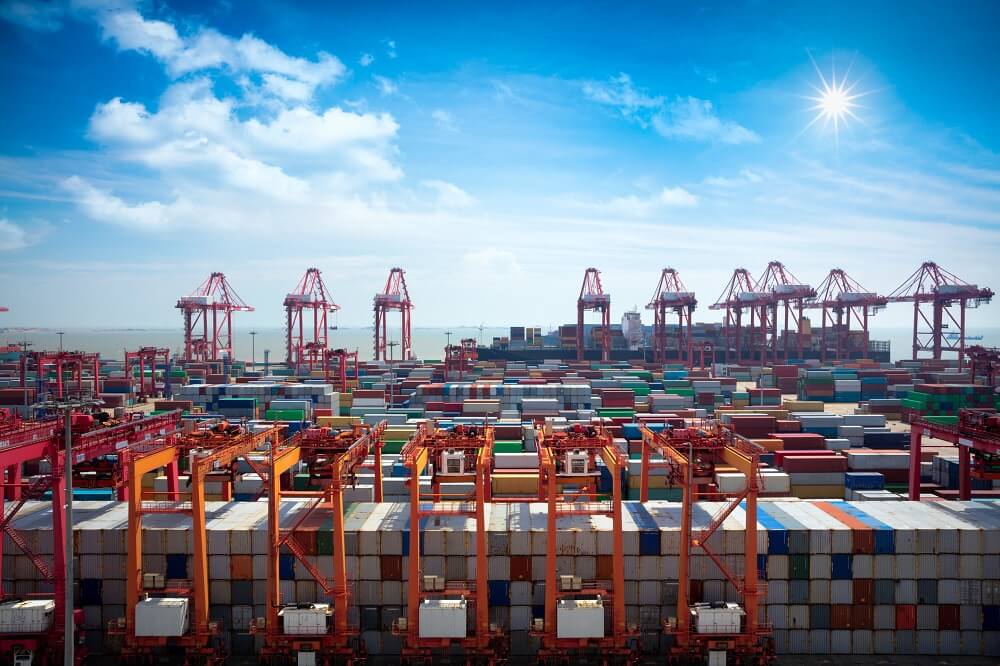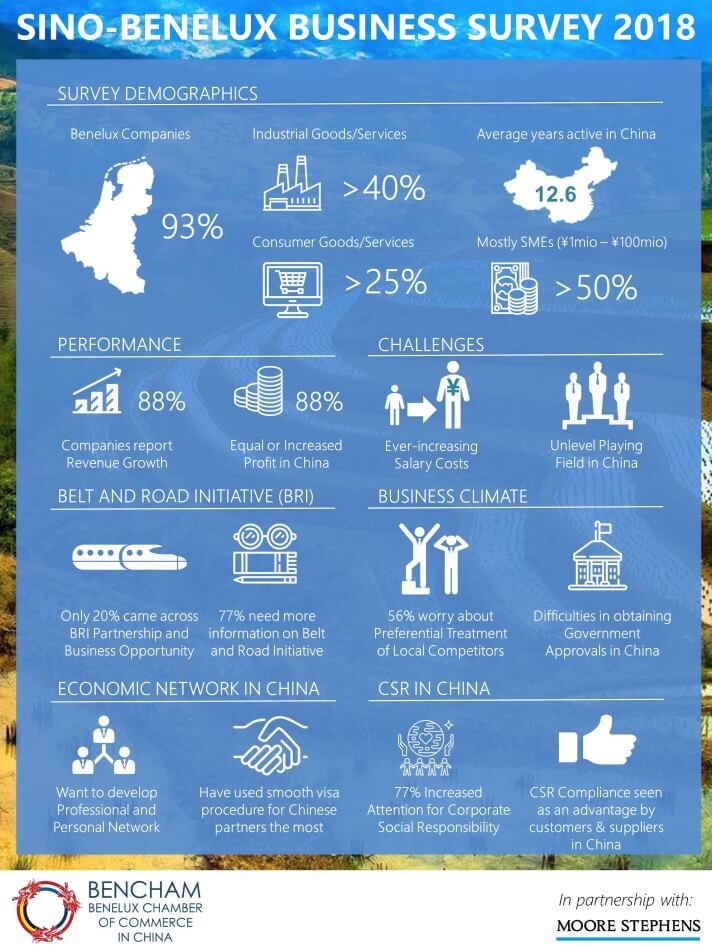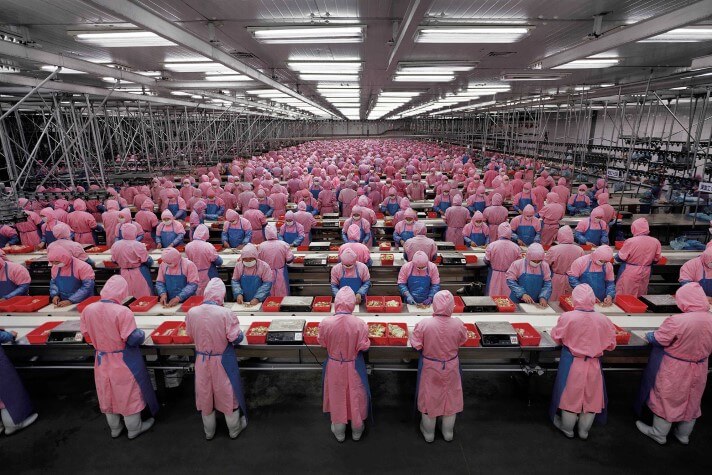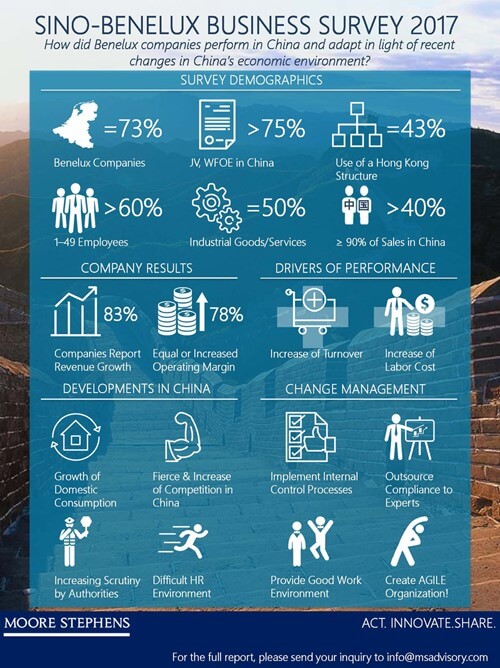
E-commerce in China
To better understand the eCommerce market in China, we explain the difference between domestic and cross-border eCommerce as well Taobao, Tmall and JD.com
Expert Corporate Services
For over a decade, we have been offering full-service accounting and strategic advisory to SMEs in China and APAC.
Back

To better understand the eCommerce market in China, we explain the difference between domestic and cross-border eCommerce as well Taobao, Tmall and JD.com

Organisations wishing to do business in China may consider establishing a business in the country. In this article we discuss and compare China entry modes.

The new Negative List replaced the Catalogue for Foreign Investment in China and relaxed several investment restrictions for foreign investors.

How have Benelux (Belgium, the Netherlands and Luxembourg) companies active in China performed in 2017 and what their expectations for 2018?

How exactly can foreign firms benefit from OBOR, even though it seems on to be a policy mostly for strengthening Chinese economy?

MIC 2025 plans to elevate the manufacturing capabilities of Chinese firms and aims to promote innovation, self-sufficiency in critical high-end materials, higher quality standards, and “earth-friendly” technology. Background Initially disclosed by the State Council back in 2015, MIC 2025’s goal is to support Chinese manufacturing firms in their bid to “upgrade” their core competencies and transition into more value-added and higher technological capabilities. According to economic information, a Xinhua-run publication, the initial investment was pegged at 100 Billion yuan (approximately 1.5 Billion US Dollars). There are around 25 projects that have been selected to be recipients of financial support ranging from 30 to 50 million yuan each. Key projects, on the other hand, will receive a heftier sum of 100 million yuan.

Whereas there have been numerous success stories driven by this growth, it is still common for many foreign companies to enter this market unprepared, or worse, uninformed of the potential pitfalls. Even the most sophisticated companies cannot envision all the potential problems they may encounter. If you were going to open a chain of eating establishments in China (a lucrative endeavor by the way) would it ever occur to you that someone may be selling you counterfeit salt? We cannot anticipate every problem, however, experienced professionals like Moore Stephens do have some local knowledge and can share that with multinationals willing to spend the time and effort into learning the do’s and don’ts of this market. This article will describe that even though it is impossible to anticipate every situation which may liquidate your investment, expose your trade secrets, and/or damage your valuable reputation, it makes sense to be as well prepared as possible when doing business in China.

How have Benelux (i.e. Belgium, the Netherlands, Luxembourg) companies performed within China? How are Benelux companies adapting to these changes in the Chinese market and how would it affect them in 2017? In collaboration with 1421 Consulting Group in Beijing and in Shenzhen (‘Pearl River Delta’), and with the Benelux Chamber of Commerce in Beijing, Shanghai and the Pearl River Delta in China, Moore Stephens Consulting organized this year again the Sino Benelux Business Survey and has asked these questions via in-depth interviews and questionnaires to Benelux companies active across China.

The Chinese authorities are trying to simplify administrative procedures and to reduce bureaucratic hurdles with the aim of developing a market-based economy and “promoting mass entrepreneurship and innovation”. Therefore, they have instituted administrative reforms simplifying China’s business establishment and registration procedures In October 2015, the “Three-in-One” business license has been implemented, a single integrated business license instead of three separate certificates (i.e. Business License, Organization Code and Tax Certificate) when registering. In October 2016, it is the “Five-in-One” business license, which is including the Social Security and Statistics Bureau Certificate, has been implemented and shall replace the previous ‘Three-in-One’ business license.

A lot has been said and written about the developments of the Chinese economy, however not much is known about the impact on Benelux (i.e. Belgium, the Netherlands, and Luxembourg) companies active within China and how they foresee these changes. What consequences will the ‘New Normal’ have on Benelux companies active within China, and what impact shall this have on the results and expectations of these companies? Do they expect these changes will have a negative impact on their business, or are Benelux companies even positive about the developments of the Chinese economy?
GET STARTED WITH MSA. TODAY.
By subscribing, I accept MSA Privacy Policy.
The Preferred Partner for SMEs in China
Headquarters
No. 668 East Beijing Road
Room A, 21st Floor, East Building
Huangpu District, Shanghai

© MSA 2024 – Privacy Policy